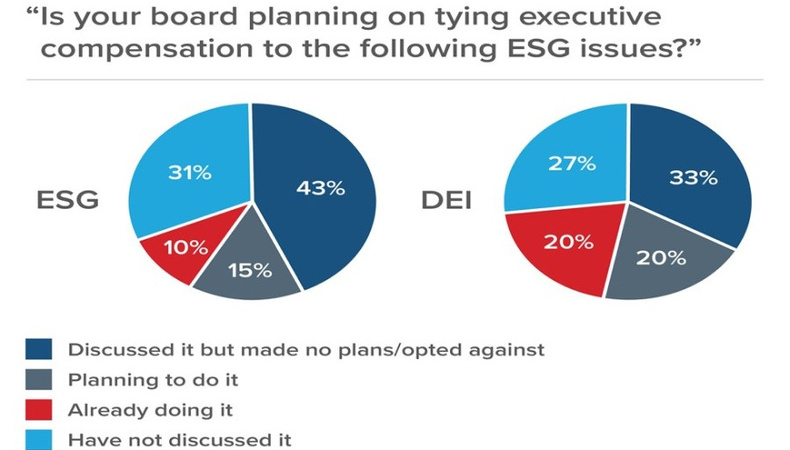What are the after-effects of Covid-19 on reward planning?

On the executive compensation front, we saw that many issuers announced pay cuts for their executives during the pandemic. For most of the issuers, the pay cuts were on the base salary which usually forms an insignificant proportion of executive compensation. Data from our compensation and governance intel (CGI) suggests that most executives withheld or cancelled annual bonus in line with their company’s performance. On the other hand, long term incentives on average grew, which could be explained by, for some companies, base salaries being deferred into long term incentives.
On the employee side, we have witnessed changes in how work is conducted in ways that was thought of as impossible. Years ago, working from home was not a topic for discussion. Now, with the world still reeling with the effects of the pandemic, working from home has become the norm. Suddenly, employees must juggle between being at home with their kids and balancing their demands from work. The pandemic has influenced how work is being conducted and its likely to remain like that for a very long time.
The after-effects of Covid-19 on compensation planning
The pandemic has shed light on dynamics around executive compensation and the need to gradually move away from only focusing on shareholder value creation to also include the wellbeing and interests of other stakeholders.
2020 shone an extraordinary light on human rights issues, diversity, equity and inclusion (DEI), and it has become paramount that all these are now incorporated into executive compensation or at least to a greater extent. The proliferation of environmental, social and governance (ESG), has only exaggerated the matter and investors are looking closely at how executives balance leadership and sustainability. We are likely to see this manifesting in executive compensation from now onwards.
ESG factors have gained traction and visibility over the years, not only among investors and shareholders but also among other stakeholders, governments and regulators. This has led to increased pressure for companies to incorporate ESG policies into various parts of their businesses.
In September 2021, the Diligent Institute published Aligning Pay, People and Planet, which evaluated the inclusion of ESG key performance indicators (KPIs) in executive remuneration policies across companies in the European Union. We saw that ESG-related metrics in compensation plans are increasing across Europe, with France setting the pace for other countries on the continent.

In Diligent Institute & Corporate Board Member’s January 2021 Director Confidence Index (DCI):
- 25% of those surveyed either had already tied ESG metrics to executive compensation or were planning on doing so.
- 40% had already, or were planning to, incorporate DEI metrics into executive compensation.

The growth of ESG metrics is only the beginning. It is good that remuneration committees are taking notes and are taking pragmatic measures to ensure that executive compensation has sustainable value creation embedded in it.
The future of employee compensation
With the aftermath of the pandemic, there is the need to also rethink employee compensation and how it is designed. The pandemic has shone light on income inequality and that will have to be taken seriously by reward planners.
The significant impact of Covid-19 on employees is not limited to physical wellbeing risks, but also extends to the heavy peal on workers’ mental health. There is the need therefore to take this into account when planning employees’ remuneration. Employers can increase the expanded health, life, disability, and wellness benefit for their employees. On the other hand, they can also make available emergency financial assistance for their employees and/or increased bonus.
As enumerated earlier, there is growth in long term incentives for executives, so perhaps the time has come to incorporate that into the compensation of employees to align their interests.
Conclusion
The pandemic has affected global economies in ways that was never envisaged, and therefore it has become necessary that reward planning for both executives and employees are realigned to fit the times. In all, it is expected that there will be greater emphasis on fairness and equity for all stakeholders.
This article is provided by Diligent.
Supplied by REBA Associate Member, Diligent
Our modern governance platform empowers leaders & teams to digitally transform & create positive change.







